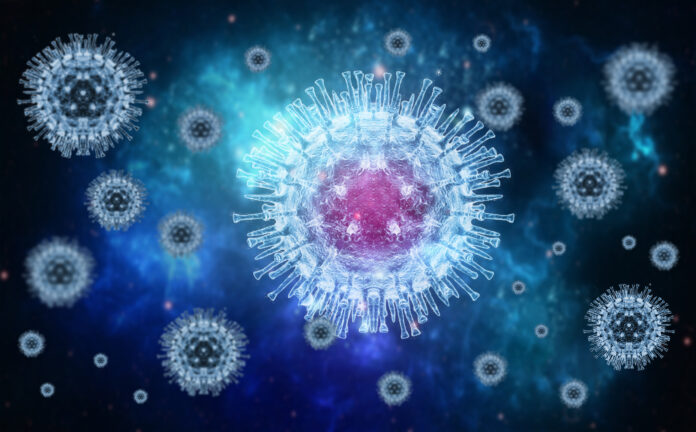A Lancet study is the first to examine the role of antivirals in treating monkeypox patients, providing hope for containing the outbreak.
Between 2018-2021, seven patients in the UK developed monkeypox. A team of researchers analyzed these cases for their clinical features, and their response to antivirals. The cases in the paper are the first recorded instances of in-hospital transmission and household transmission outside of Africa. According to the study, researchers tested two different antivirals among the monkeypox patients. Results are available in the journal The Lancet Infectious Diseases.
As public health officials are trying to understand what is causing the May 2022 monkeypox outbreaks in Europe and North America – which have affected several patients who reported neither travel nor an identified link to a previously known case – our study offers some of the first insights into the use of antivirals for the treatment of monkeypox in humans.
Dr. Hugh Adler, lead study author
All seven patients in the study had no history of any existing medical conditions, and none had received a smallpox vaccination. Moreover, they all had a mild form of infection and made full recoveries.
Four of the patients received either brincidofovir or tecovirimat; three received brincidofovir and one got tecovirimat. At the time, these antivirals were not licensed for use against monkeypox. Both brincidofovir and tecovirimat were initially developed for treating smallpox after its eradication. However, in the USA, experts have approved it for the treatment of smallpox in case of a potential bioterrorism event.
Since the monkeypox virus belongs to the same family as smallpox, many researchers have proposed the use of such antivirals against the current outbreak. The team of researchers decided to go with the antivirals on the basis of evidence of efficacy in animal models. They hoped to see a reduction in hospital stays and prevention of disease progression in patients. Therefore, they began administering the antivirals shortly after the appearance of skin lesions.
The Outbreak so Far
The monkeypox outbreak first began in early May when the UK Health Security Agency (UKHSA) reported a single case. The person in question had recently travelled to Nigeria, an endemic region. Soon after, more cases began to appear in the UK and later in other parts of Europe. As of 26th May, England has confirmed a total of 101 monkeypox cases since 7th May. Moreover, 16 countries around the world have now reported similar monkeypox cases. These include the USA, Spain, Canada, France, Portugal, and several others.
The World Health Organization (WHO) has declared it an outbreak and believes the cases will rise further as countries expand surveillance efforts.
Outbreaks outside of Africa are unusual but in recent days, significant outbreaks have been reported in several European countries, including the UK, and further afield globally. Clinical trial data is lacking and we are pleased to share some of our collective experience in managing this previously rare and sporadic condition.
Dr. Nick Price, study author
What is unusual about the current outbreak, is that a majority of cases have occurred among people with no travel history to endemic African regions. According to WHO, those who have had physical contact with a symptomatic monkeypox case are most at risk. So far, most cases have occurred in men who are gay, bisexual or men who have sex with men. Therefore, health experts are urging these men, in particular, to watch out for any new rash, blister or ulcer, on any part of the body.
However, it is important to not stigmatize any particular group of people. It is still very much an infection that can infect anyone. Human-to-human transmission is possible through respiratory droplets, close skin contact, and contaminated bedding.
Antivirals Shorten Monkeypox symptoms
There are currently no licensed treatments for monkeypox. However, doctors have often turned to antivirals and smallpox vaccines for monkeypox treatment.
According to the study’s results, brincidofovir had no clinical benefits among the three patients administered the drug. Moreover, it caused altered liver enzymes in the patients. However, study authors theorize that the drug could have had different outcomes if given earlier in the course of the disease. Despite the drug’s effect, all three patients fully recovered.
On the other hand, tecovirimat was only given to one patient. The woman had fewer lesions and had a quicker recovery than other patients. She spent only 10 days in the hospital as compared to an average of 27 for others. Nor did she suffer any side effects. However, one patient that did not receive any antivirals recovered in 13 days. Therefore, study authors call for larger studies to help evaluate the antiviral’s true effect on monkeypox infection.
In these seven UK cases, viral shedding was observed for at least three weeks following infection. However, data on infectivity remains limited, and is an important area for future study.
Dr. Catherine Houlihan, study author
Since it is still too early to establish treatment strategies for monkeypox, researchers believe that their study can help others further evaluate the role of antivirals.
Reference:
Adler, Hugh, et al. “Clinical Features and Management of Human Monkeypox: A Retrospective Observational Study in the UK.” The Lancet Infectious Diseases, 2022, doi:10.1016/s1473-3099(22)00228-6.




